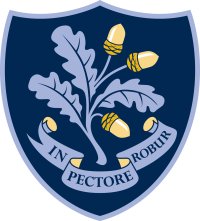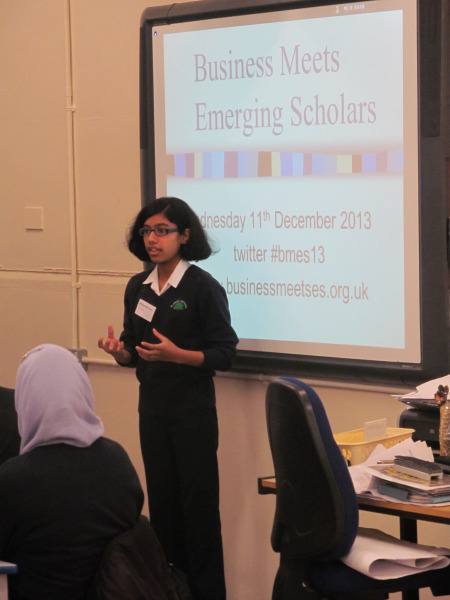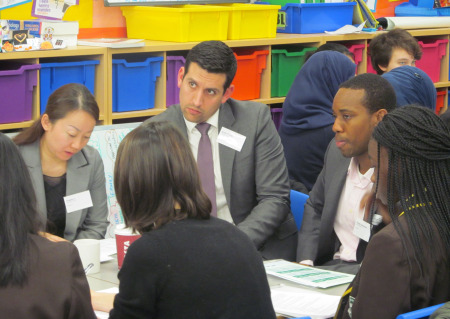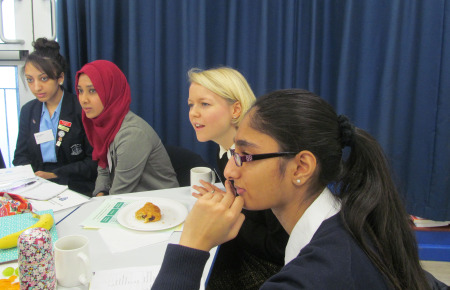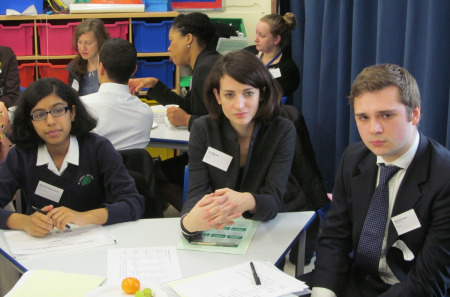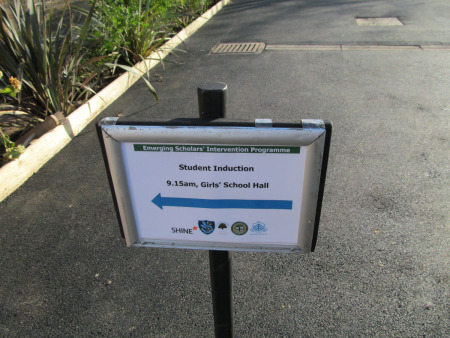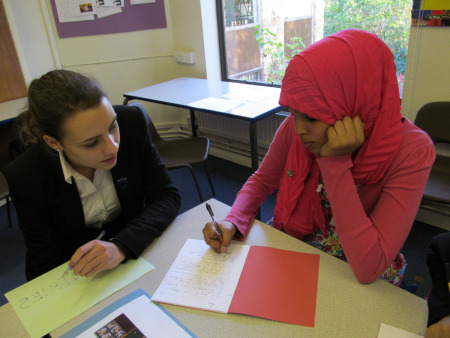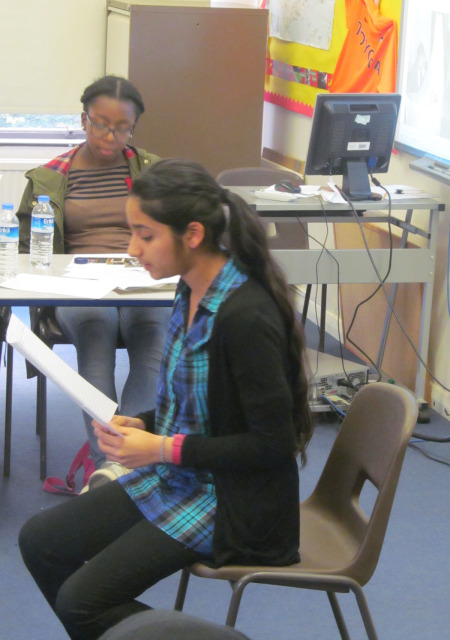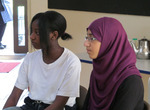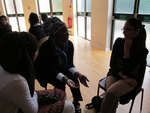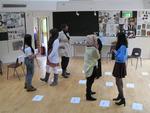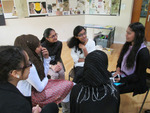The Year 9 Emerging Scholars returned for their second year and kicked off with the return of Michael Mallows for Advanced Crafty Listening. The day was all about making better decisions.
We also welcomed four new mentors for Year 9 – Amrit, Anokhi, Chandni and Ellie.
The girls started off with remembering back to May’s initial Crafty Listening session and what we had used from that session and the effect it had had on us.
We moved on to a model called Discounting Problems. It follows a set of levels and helps explain our relationship with problems. The first level is existence (the problem doesn’t exist), the second is significance (it doesn’t matter), the third is changeability (it can’t be changed), the fourth is personal power (I have no power to do anything about it anyway). We had good discussions in small groups about how we use the model in our day to day lives and what we can learn from it.
“The discounting exercise has helped me turn a problem into a solution.”
We then created a Coat of Arms each – identifying six things which make up the Coat of Arms: our biggest success, our biggest failure, our hope for year 9, our hope for the next five years, our motto and our epitaph. We then used elements from the Coat of Arms (e.g. success, hope) and investigated them further with clean questions to better understand them. This provoked some excellent explanation, deep thinking and much better personal understanding of what we want.
“The coat of arms exercise made me think about the future and what I want to achieve.”
Learning styles are a popular concept which aren’t always well understood. The girls played an exercise imagining they had been on holiday together and were meeting to reminisce. They had to talk about their holiday experience only in term of things they either ‘saw’ (visual), ‘heard’ (auditory), or ‘felt’ (kinaesthethic). It certainly provided a challenge especially for those girls who were working against their natural learning style.
Year 9 is going to be about building new positive habits and one thing we have recognized is having your hand over your mouth whilst speaking makes you very unclear so we are on the lookout for that one!
The lifeboat exercise involved us creating a character profile each which was then randomly shared with another student. Each of us then had to make our case for not being thrown out of a lifeboat to be eaten by hungry, intelligent sharks. We learned how important it was to build on argument (not just make simple points), to provide evidence, to not back down quickly in the face of a more intimidating or louder debating opponent and to be aware of our system one and two thinking. We moved on to think differently about the problem (reframing) and thought about how as individuals we often fight for survival at the level of being heard. (Less about drowning or being eaten by wild beasts and more about being listened to).
We recapped what effect the last Crafty Listening session had on the girls and here were some of the highlights:
- “I think more before I speak so it makes sense before I say it and makes me understand what I’m saying better and with more confidence.”
- “I use system 2 thinking in essays and assignments, thinking more deeply. I explain answers more (not just as single sentences) and my grades are higher.”
- “I’m using the GROW model to define actions, explore options and turn them into goals. I actually see the steps more clearly and experiment with options.”
- “I use system 1 and 2 to analyse more. I don’t shoot my hand right up but think first and then do it.”
- “I used thought-feeling-insight. It helped me on a maths test. I wanted a high level (thought), adopted a positive attitude (feeling) and changed my revision methods to help me work harder and better by doing more home study. As a result I got the level I wanted.”
- “Using system 1 and 2 to explore possibilities and answers rather than just thinking one thing, so finding out what works best.”
After lunch we mixed up into 4 groups of 5 to debate whether an Oxbridge education is the best and the only education you would want. This proved hard for some girls who had to debate the opposite of what they believed but it proved a good opportunity to practice debate and to develop counter arguments.
We moved to Well Formed Outcomes to help define how we can reach our goals. Once we had our well formed outcomes and discussed them we then analysed how we sabotage ourselves – examples included not paying attention, procrastinating or just doing the wrong thing (because it’s easier and the immediate pay off is better). All the students found the sabotage exercise insightful.
“I achieved my goal to participate more. This will make a difference to me because I can and will be confident to speak in and outside of school. I also learnt about Well Formed Outcomes which was what I want, how will I know I am moving forward to it, how will I know I got it and how can I sabotage myself. This will help me be more organised with myself and who I want to be what I want to be older.”
The day ended with a relaxation exercise and after the usual reflection time we all left, tired but better informed. The girls have developed more self awareness and self-reflection skills and they seem able to listen better and longer (the proof will be in class and other activities). They are learning to ask better questions and this is helping develop their emotional intelligence. They are growing in confidence, being more open, saying what they feel and learning to recognise what goals to set themselves.
Year 9 are back in four weeks for Session 2 when they will be joined by our new Year 8s.
 Saturday, June 21, 2014 at 9:05PM
Saturday, June 21, 2014 at 9:05PM  ESIP Forest | Comments Off |
ESIP Forest | Comments Off | 

